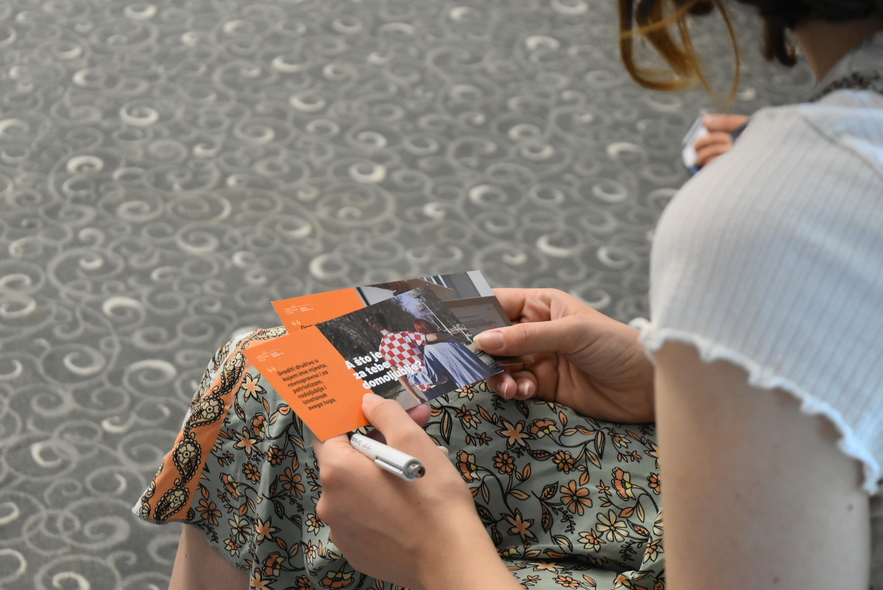Justice and accountability are fundamental to the protection of human rights and civil liberties, as well as to the long-term stability of post-war societies.
In Croatia, despite significant institutional development since the 1990s, the justice system continues to face structural challenges related to independence, impartiality, and public trust. Accountability for serious human rights violations and war crimes remains uneven, with many crimes insufficiently investigated or prosecuted, and with victims and their families still lacking effective access to justice.
The Justice Program responds to these challenges by addressing both the institutional and societal dimensions of justice. It recognizes that legal accountability must be accompanied by education, public understanding, and sustained civic oversight in order to be credible and effective. By combining capacity building, legal research and advocacy, and the preservation of established judicial facts, the program seeks to strengthen the rule of law, reinforce judicial independence, and embed transitional justice within Croatia’s democratic and human rights framework.
Academy for Human Rights and Transitional Justice — To build the capacity of young people from diverse backgrounds to contribute to the promotion and protection of human rights and civil liberties, YIHR Croatia will establish the Academy for Human Rights and Transitional Justice, in cooperation with the Human Rights House. This will be a significant, wide-ranging hybrid educational program implemented annually. Leading experts from Croatia and abroad will lecture on a broad range of human rights and transitional justice topics, while the program will also include multidisciplinary perspectives and practical exercises. Participants will acquire relevant and applicable knowledge of human rights and transitional justice.
YIHR Croatia will draw on lessons learned from more than 15 years of experience in implementing educational programs in these fields. To ensure the program’s relevance and practical value, it will bring together professors of law, political science, philosophy, sociology, and history, as well as practitioners in the fields of human rights and transitional justice, artists, activists, lawyers, and others. To further increase the program’s attractiveness to young people, the partners will seek accreditation for the Academy in cooperation with educational institutions in Croatia and abroad.
Legal Research and Advocacy — To address the lack of proactive work by prosecutorial institutions in Croatia, YIHR Croatia will once again conduct legal research and submit criminal complaints related to unprosecuted crimes from the 1990s. In the past, YIHR Croatia carried out significant research of this kind—for example, into crimes committed against Serbs in Vukovar in the summer of 1991, prior to the JNA offensive on the city, and into the torture of prisoners of war and civilians following the 1995 “Bljesak” military operation.
Crimes committed by Croatian forces or forces under Croatia’s control in Croatia and Bosnia and Herzegovina remain inadequately investigated, while crimes committed in occupied areas of Croatia under the control of the unrecognized “Republic of Serbian Krajina” are also under-investigated. Victims and their families have often lacked access to justice. YIHR Croatia’s legal research will focus precisely on these crimes—those neglected by judicial institutions or those in which proceedings (from pre-investigation to trial) have been subject to political pressure and bias. This research will also provide the foundation for advocacy efforts aimed at promoting judicial independence and impartiality in Croatia.
Legacy of Justice — Since its founding, YIHR has cooperated with the UN International Criminal Tribunal for the former Yugoslavia (ICTY) and later with the International Residual Mechanism for Criminal Tribunals (IRMCT). From 2012 onward, YIHR Croatia had a Memorandum of Cooperation with the ICTY Outreach Program, through which it promoted information about the Tribunal’s work in Croatian high schools. During this strategic period, the Initiative will renew cooperation with the IRMCT in order to strengthen public understanding of the ICTY/IRMCT’s contribution and ensure that the legacy of its work is preserved.
YIHR Croatia will work to increase the presence of established facts and legal conclusions from the Tribunal in Croatia’s public discourse. It will integrate this legacy into the Academy for Human Rights and Transitional Justice and the Museum of Memory for Civilian Victims of War, and will continue researching crimes identified by the ICTY in cases where Croatian institutions have so far failed to act adequately.
